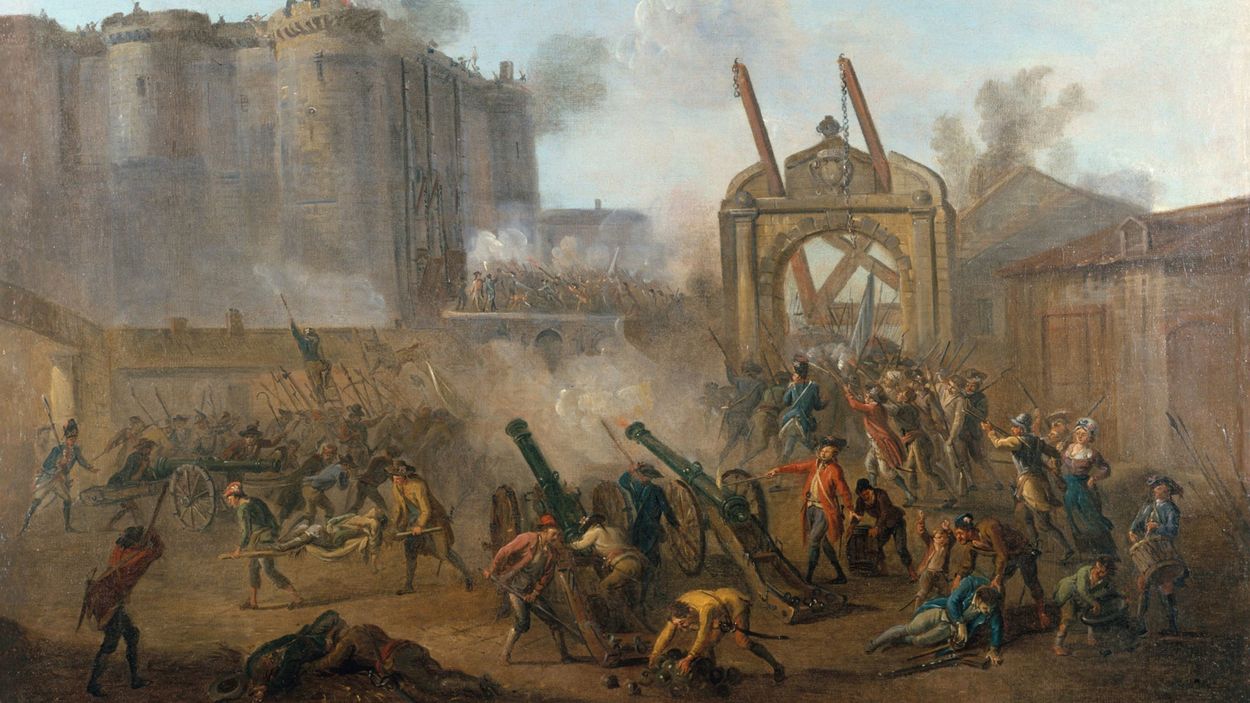
The Flour Revolt was a significant event in 18th-century France that showcased the power of the people against oppressive policies. Sparked by rising bread prices and grain shortages, this uprising highlighted the struggles of the common folk. Did you know that the Flour Revolt was one of the many precursors to the French Revolution? The revolt saw peasants, workers, and even some bourgeoisie uniting in protest. Their actions forced the government to reconsider its policies on grain distribution. The Flour Revolt not only emphasized the importance of bread in French society but also underscored the growing discontent with the ruling class. Curious about more intriguing details? Let's dive into 25 fascinating facts about this pivotal moment in history.
Key Takeaways:
- The Flour Revolt was a major uprising due to high flour prices, leading to riots and influencing the French Revolution. It showed the power of people to challenge oppressive systems.
- The Flour Revolt in the late 18th century highlighted the importance of fair pricing and food security, inspiring future movements and serving as a reminder of the power of collective action.
Flour Revolt: A Brief Overview
The Flour Revolt was a significant event in history, highlighting the struggles and resilience of people against oppressive economic conditions. This revolt, which took place in various regions, was driven by the scarcity and high prices of flour, a staple food. Here are some fascinating facts about this historical event.
Origins of the Flour Revolt
Understanding the roots of the Flour Revolt helps us grasp why it was such a pivotal moment.
- The Flour Revolt began in the late 18th century, primarily in France, during a period of severe economic hardship.
- High taxes and poor harvests led to skyrocketing flour prices, making bread unaffordable for many.
- The revolt was part of a broader series of food riots that occurred across Europe during this time.
- The French government’s policies, including deregulation of the grain market, exacerbated the crisis.
- Bread was the main food source for the poor, so any disruption in its supply had dire consequences.
Key Events During the Revolt
Several notable incidents marked the Flour Revolt, each contributing to its historical significance.
- In April 1775, riots broke out in Paris and its surrounding regions, known as the "Flour War."
- Rioters attacked grain convoys, mills, and bakeries, demanding fair prices for flour and bread.
- The revolt spread quickly, with similar uprisings occurring in other French cities like Dijon and Lyon.
- Authorities responded with force, deploying troops to quell the unrest and restore order.
- Despite the crackdown, the revolt highlighted the deep-seated grievances of the lower classes.
Impact on Society and Politics
The Flour Revolt had lasting effects on society and politics, influencing future events and policies.
- The revolt exposed the inefficiencies and injustices of the French economic system.
- It contributed to the growing discontent that eventually led to the French Revolution in 1789.
- The government was forced to reconsider its policies on grain trade and food supply.
- The revolt underscored the importance of food security and fair pricing in maintaining social stability.
- It also highlighted the power of collective action among the oppressed classes.
Notable Figures Involved
Several individuals played crucial roles in the Flour Revolt, either as leaders or as symbols of the struggle.
- King Louis XVI faced significant criticism for his handling of the crisis.
- Anne-Robert-Jacques Turgot, the French finance minister, attempted reforms but faced opposition.
- Local leaders and community organizers emerged as key figures in mobilizing the masses.
- The revolt inspired future revolutionary leaders who saw the potential for change through popular uprisings.
- Historians and writers of the time documented the events, ensuring their place in history.
Legacy of the Flour Revolt
The Flour Revolt left a lasting legacy, influencing future movements and shaping historical narratives.
- The revolt is often cited as a precursor to the more extensive and violent French Revolution.
- It highlighted the critical role of food in social and political stability.
- The events of the revolt are studied in history classes as an example of grassroots resistance.
- The Flour Revolt serves as a reminder of the importance of addressing economic inequalities.
- It remains a symbol of the power of ordinary people to challenge and change oppressive systems.
Flour Revolt's Lasting Impact
The Flour Revolt wasn't just a blip in history; it was a pivotal moment that showcased the power of collective action. People stood up against unfair practices, and their courage led to significant changes. This revolt highlighted the importance of food security and fair pricing, issues still relevant today. It also demonstrated how ordinary folks could influence policies and bring about reform. The legacy of the Flour Revolt reminds us that standing together can lead to meaningful change. Understanding these historical events helps us appreciate the struggles and victories that shaped our world. So next time you enjoy a loaf of bread, remember the brave souls who fought for fair access to flour. Their story is a testament to the enduring spirit of resistance and the quest for justice.
Frequently Asked Questions
Was this page helpful?
Our commitment to delivering trustworthy and engaging content is at the heart of what we do. Each fact on our site is contributed by real users like you, bringing a wealth of diverse insights and information. To ensure the highest standards of accuracy and reliability, our dedicated editors meticulously review each submission. This process guarantees that the facts we share are not only fascinating but also credible. Trust in our commitment to quality and authenticity as you explore and learn with us.
